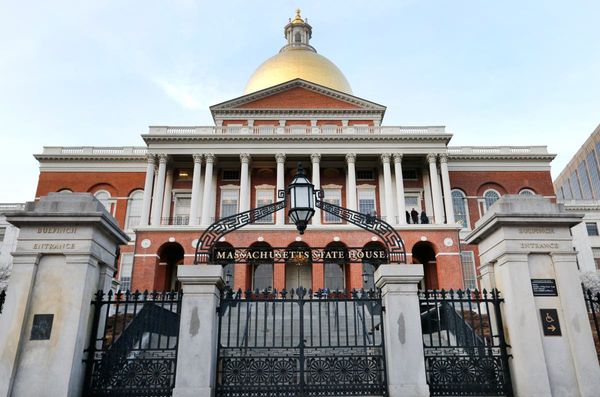
A central discussion that has arisen around artificial intelligence involves the arts and the many ways in which so-called generative AI is already disrupting the creative industry. The impact AI is already having in the arts stretches from Hollywood to individual artists on social media, to the music industry, and now, the publishing industry.
One of the biggest issues here is of very careful copyright infringement. AI models need a lot of high-quality data for training; in order for an AI model to spit out a passable book or essay, it needs to be trained on a litany of journalistic articles and novels. The resulting essays, books, photos, etc., are mere regurgitations of the pieces of art the model was trained on. By existing in this form, it's not exactly copyright infringement. And the artists don't see a dime in revenue.
DON'T MISS: Grammys CEO Says AI Must Be a Tool For Artists; It Can't Replace Them
Another issue plaguing the industry is one of pervasive and malicious copying and replication. Jane Friedman, an author and expert in the publishing industry, said Aug. 7 that she encountered around half a dozen books being sold on Amazon under her name.
She had never written these books.
"Whoever’s doing this is obviously preying on writers who trust my name and think I’ve actually written these books. I have not. Most likely they’ve been generated by AI," she wrote. "With the flood of AI content now published at Amazon, how can anyone reasonably expect working authors to spend every week for the rest of their lives policing this?"
Friedman filed a report with Amazon (AMZN) -), but said the company closed the case because her name is not trademarked and she is not the copyright owner for these AI-generated books.
More Artificial Intelligence:
- Here's the steep, invisible cost of using AI models like ChatGPT
- Musicians find AI terrifying, but Spotify's CEO (sort of) disagrees
- AI Is bringing beloved musicians, like John Lennon, back from the dead
A brief update: After going back a few times with Amazon on this issue, I was notified the books would not be removed based on the information I provided. Since I do not own copyright in these AI works and since my name is not trademarked, I'm not sure what can be done. https://t.co/F5KuK4F36X
— Jane Friedman (@JaneFriedman) August 7, 2023
The author's guild contacted Friedman through Twitter, promising to advocate on her behalf.
As of Aug. 8, the offending material has been removed from Amazon's digital shelves. At least one of the fraudulent materials remains, however, on Friedman's Goodreads profile.
"We have clear content guidelines governing which books can be listed for sale and promptly investigate any book when a concern is raised," Amazon spokesperson Ashley Vanicek said. "We welcome author feedback and work directly with authors to address any issues they raise and where we have made an error, we correct it. We invest heavily to provide a trustworthy shopping experience and protect customers and authors from misuse of our service."
People keep telling me they bought my newest book — that has my name on it but I didn’t write — some scammer using the ‘find more by this author’ algorithm.
— Sarah Rose (@thesarahrose) August 7, 2023
My publisher was unable to make it stop and I sort of gave up
Friedman is not alone in dealing with this specific issue. Several authors chimed in on X (formerly Twitter) to share similar stories, with one saying that her "publisher was unable to make it stop."
Even as Amazon and its peers work to enhance their AI capabilities, the tech giant -- worth around $1.5 trillion -- has been pushing content, even if it is by AI. As of February, Amazon had published around 200 E-books that listed ChatGPT as the author.
I’ve had all of my cookbooks copied several times each by groups using AI. There are still a couple sitting on Amazon, although I’ve been very fortunate to have my publisher’s lawyers deal with @amazon.
— Theresa Carle-Sanders 🧑🍳🇨🇦 (@OutlanderKitchn) August 7, 2023
If the @twuc has a group fighting AI, I’m interested in getting involved.
"We desperately need guardrails on this landslide of misattribution and misinformation," Friedman said in a blog post. "Amazon and Goodreads, I beg you to create a way to verify authorship, or for authors to easily block fraudulent books credited to them. Do it now, do it quickly."
Receive full access to real-time market analysis along with stock, commodities, and options trading recommendations. Sign up for Real Money Pro now.







